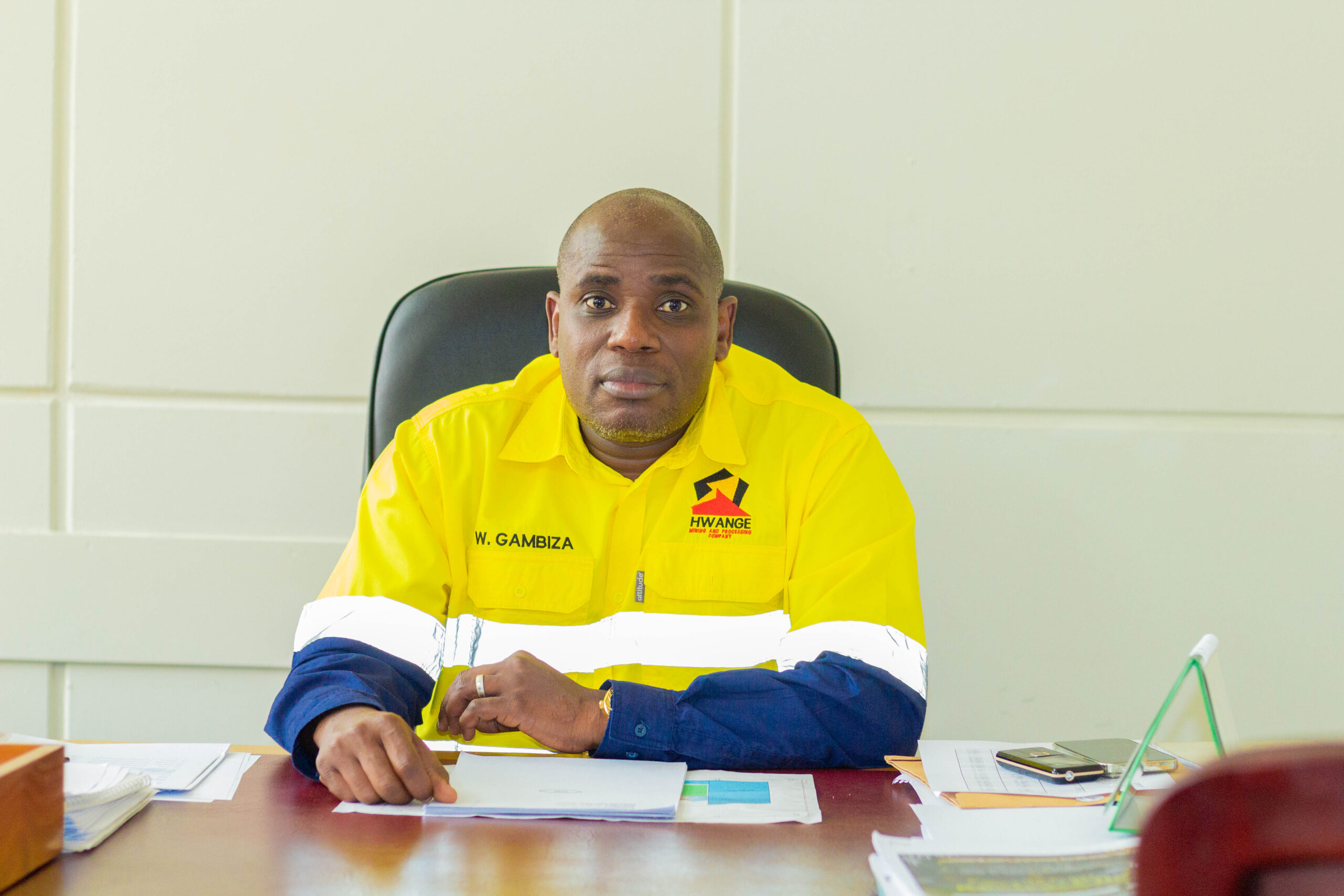Hwange Colliery Company Limited (HCCL) Holdings, currently under administration, has officially appointed William Gambiza as its Chief Executive Officer (CEO), Mining Zimbabwe has learned.
By Rudairo Mapuranga
This strategic appointment, made by HCCL Holdings Administrator Munashe Shava, marks a pivotal point in the company’s efforts to secure a sustainable future and reestablish itself as a key player in Zimbabwe’s mining sector.
In a memorandum dated November 6, 2024, Shava highlighted Gambiza’s extensive experience and leadership capabilities, describing him as a visionary capable of driving innovation and growth within the company.
“William brings a wealth of experience, visionary leadership, and a proven track record of success in the mining industry. We are confident that he will lead our organization to new heights, fostering a culture of excellence, collaboration, and sustainability,” Shava said.
Gambiza, who had been serving as acting CEO before this permanent appointment, is no stranger to Hwange Colliery’s challenges. He steps into the role at a time when the company is focused on operational improvements, financial stability, and reinforcing its presence within Zimbabwe’s coal industry. With over 18 years of experience in both mining and investment banking, Gambiza is seen as the right leader to usher in a new era of stability, performance, and innovation.
The restructuring of Hwange Colliery into HCCL Holdings and Gambiza’s leadership has been well received by the company’s workforce, boosting optimism about the company’s turnaround. Workers have praised the improvements in their working conditions and the open-door management style that Gambiza has introduced.
According to Deliverance Nyoni, Chairman of HCCL Holdings Workers’ Committee, the new management has been instrumental in improving both the work environment and the relationship between workers and leadership.
“Working conditions have improved greatly, and no one is afraid at work anymore. The CEO is not just a boss; to us, he’s a friend. There’s no longer a fear of being victimized, and production results reflect that,” said Nyoni. He added that the management has fostered an inclusive culture where workers are encouraged to share ideas on how to grow the company, leading to greater morale and productivity.
Gambiza’s leadership style emphasizes the involvement of all employees in decision-making processes, stating that “leadership is about influence and people.” He believes that the success of Hwange Colliery lies in the full involvement of workers from the ground up. “Partial involvement gives partial results. Full involvement gives full results,” Gambiza explained. He emphasized that the company’s workforce now participates actively in shaping business objectives and strategies, marking a shift from merely focusing on salaries to a more holistic approach to business success.
Since implementing the Business Improvement Project (BIP) under Gambiza’s leadership, Hwange Colliery has made strides in capital projects aimed at boosting operational efficiency and ensuring long-term sustainability. The company, which employs over 3,500 people (including contract workers), has introduced several programs to benefit employees, such as an internal medical fund and the Colliery Fund. These initiatives aim to improve employees’ welfare, ensuring they leave the company in a better financial position.
Looking ahead, Gambiza has set his sights on transforming Hwange Colliery into a leader in innovation and sustainable growth.
“Our team’s role has expanded beyond salary discussions to actively participating in the company’s business objectives and plans. The secret is people first, strategy second,” he said.
Gambiza also underscored the importance of fostering autonomy, psychological safety, and commitment within the workforce, which he believes are crucial for achieving the company’s long-term goals.
While many developed countries are moving away from fossil fuels, Gambiza remains optimistic about coal’s future, particularly in the African context. He acknowledged the global push for greener energy solutions but noted that coal continues to play a vital role in meeting Africa’s energy needs.
“Africa faces unique challenges, and in the context of the energy crisis, coal remains a reliable source. Countries like China and India are increasing their demand for coal, even though Europe has moved away from it. The future of coal is still bright,” Gambiza said in a recent interview.
He emphasized the need for research into cleaner coal technologies, arguing that instead of banning coal outright, the focus should be on reducing emissions and making coal a cleaner energy source.
“We need to focus on cleaner, smarter technologies to reduce emissions, not just ban coal. We can talk about ‘green coal’ instead of viewing it as a dirty energy source,” Gambiza stated.
As global attention shifts towards greener energy sources, particularly in developed nations like the United States and the United Kingdom, Gambiza sees an opportunity for Africa to take a balanced approach. Coal remains essential for many African countries, where renewable energy infrastructure is still developing.
According to Gambiza, a just energy transition that considers the realities of developing nations is crucial to ensuring these countries are not left behind.
.png)




